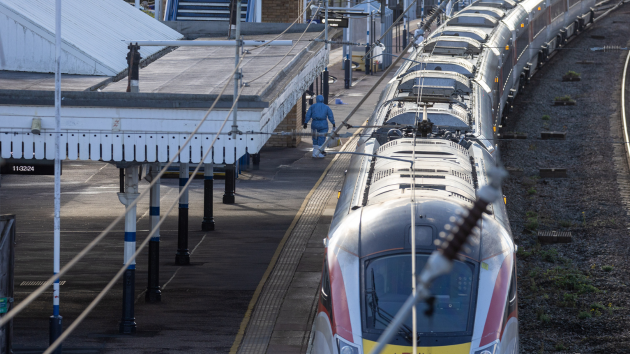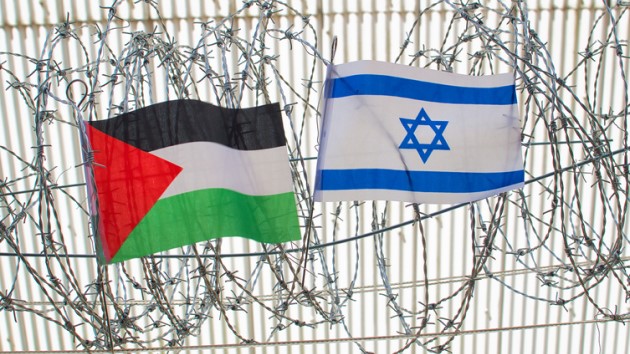Icelandic women striking for gender pay equality
Written by ABC Audio ALL RIGHTS RESERVED on October 24, 2023

(LONDON) — Tens of thousands of women in Iceland, including the prime minister, are on Tuesday set to take part in the European nation’s first full-day women’s strike in 48 years.
Known as the “Kvennafri,” or “Women’s Day off,” the scheduled walkout is in protest of the ongoing systematic gender pay gap and gender-based violence in Iceland, and to shine light on the immense contribution of women Icelandic society, organizers said.
According to event organizers — close to 40 organizations, including the Federation of the Public Workers Union in Iceland, Iceland’s largest association of public worker unions — the walkout is expected to be the largest by Icelandic women in almost half a century.
“On October 24, all women in Iceland, including immigrant women, are encouraged to stop work, both paid and unpaid,” event organizers said. “For the whole day, women and non-binary people will strike to demonstrate their contribution to society.”
The walkout is set to be the first all-day stoppage since 1975.
“This year, we strike for the whole day, just as women did in 1975. Systematic wage discrimination still affects women and gender-based violence is a pandemic that must be eradicated,” organizers said.
The people behind the strike have called on women and non-binary persons in Iceland to abstain from both paid and unpaid labor on Tuesday in an all-day stoppage. Men have been requested to not take part in the strike, but to “show their support in action by taking on additional responsibilities in the home.”
Speaking to ABC News, Melanie Edwardsdóttir, 24, a resident of Akureyri, said the turnout in the city is huge.
“I haven’t seen exact numbers the main town square, the second biggest city in Iceland — is packed!” Edwardsdóttir said.
In Iceland’s capital, Reykjavík, at least 25,000 women and non-binary people are expected to rally, calling out “Kallarou þetta jafnretti?” which translates to: “You call this equality?”
On Oct. 24, 1975, almost 90% of women in Iceland went on strike from all work and domestic duties, calling for gender equality. The walkout was described as a “watershed” moment for Iceland.
The full-day stoppage had major ramifications to functioning of Icelandic society and resulted in “pivotal change”, leading to Iceland’s parliament passing the landmark Equality Act in 1976.
According to the World Economic Forum, Iceland has been named the “most gender-equal country in the world” for 14 consecutive years. It is the only country in the world to have closed over 90% of its gender gap, it’s often referred to as a “feminist haven.”
However, Iceland’s Prime Minister Katrín Jakobsdóttir said the fight for gender equality continues. Speaking to the Iceland Monitor, Jakobsdóttir announced she is set to take part in Tuesday’s strike in solidarity with Icelandic women.
“I am first and foremost in this to show solidarity with Icelandic women. As you know, we have not yet reached our goals to full gender equality and we are still tackling the gender-based wage gap, which is unacceptable in 2023,” Jakobsdóttir said on Friday speaking after a government meeting.
The gender pay gap in Iceland stood at 10.2% in 2021, with the biggest disparity seen in Financial and Insurance economic activities where the gap widened to 29.7%, according to Statistics Iceland. Wage distribution also indicates “proportionally more women have lower paying jobs” in Iceland.
Organizers flagged that immigrant women provide “invaluable” contribution to Icelandic society, making up 22% of the Icelandic Labour market. Their contribution, however, is rarely acknowledged in their wages or among society.
“Despite all Iceland’s progress it hasn’t reached full gender equality, is only ranked by the WEF as having 91.2 percent of its pay gap closed – not 100,” says Edwardsdóttir. “For example a study by the University of Iceland found 1 in 4 women in Iceland have been raped or sexually assaulted, vast of their cases do not go to trial. So there are some really deep issues that a lot of people do not realize.”
Today, Iceland is the most gender-equal country in the world, but the fight to 100% continues, organizers said.
Copyright © 2023, ABC Audio. All rights reserved.
 KVSP
KVSP 



